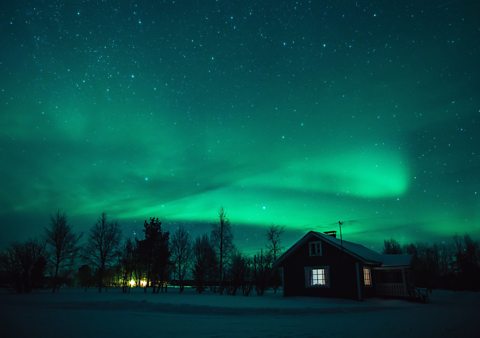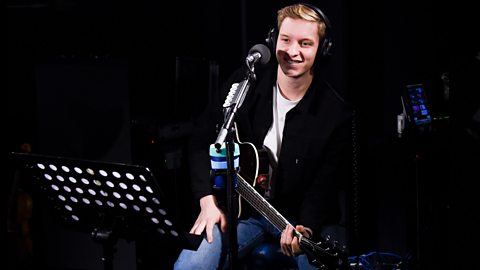
It’s a well-known scene: a baby wakes up in the middle of the night, crying inconsolably. Enter a bleary-eyed parent and their loyal ally: a soothing lullaby.
This powerful night (and early morning, and afternoon…) ritual has been around for thousands of years.
The oldest lullaby on record is 4,000 years old and hails from Babylonia.
It was called Little Baby In The Dark House, and was, well, a bit dark.
But as well as a link with past generations and civilisations, lullabies are a truly universal parenting tool.
Their ability to induce a sleepy state spans cultures and languages.
The actual melodies of some lullabies recur across the world – the tune of Twinkle, Twinkle, Little Star, for example, originated in France as a folk song and has been adapted in many different languages.
There are shared patterns in their rhythm too, usually in triple metre or 6/8 time.
So how about their lyrical content?
Well, it can give real insight into a culture or nation.
Some lullabies retell old folk tales, while others talk through a parent’s hopes and fears.

What's the story?
The Indian lullaby The Moon Uncle tells the tale of an expert chef of an uncle who lives far away – presumably on the Moon:
"Moon uncle who lives far away / Cooks delicious sweetmeat / Moon uncle who lives far away / Cooks delicious sweetmeat / Eats it from a plate / Gives a small bit for the baby in a bowl”
While this Italian lullaby repeats the phrase “go to sleep” – perhaps highlighting wishful thinking on the mother’s part:
“Go to sleep, go to sleepy / In the arms of your mother / Go to sleep, lovely child / Go to sleepy, child so lovely / Go to sleep, go to sleepy / In the arms of your mother.”
A singer performs an Indian lullaby, sung in Hindi, called The Moon Uncle.

Across Europe and beyond
Listener, beware!
Not unlike some fairy tales, some lullabies can even serve as a warning to children to behave, or some ill may befall them.
For example, this Icelandic lullaby is rather gloomy, if not actually terrifying:
"Sleep, you black-eyed pig
Fall into a deep pit of ghosts"

East Asia
In Japan, the Takeda Lullaby (Takeda no komoriuta) has been around for generations.
The Japanese folk lullaby originates from the village of Takeda near Kyoto.
The song focuses on an outcast community at the bottom of the Japanese social order and a young girl who has to work for a rich family with a baby on her back.
“I hate being a nursemaid,/The snow begins to fall, and the baby cries./The Bon Festival has come, but why should I be happy?/I don’t have nice clothes or a sash to wear./This child continues to cry and is mean to me./I get thinner because the baby cries all day./I want to quit here and go back/To my parents’ home over there,/To my parents’ home over there.”
And while a sleeping child is a sign of a lullaby that can do its job, there are other benefits to these hypnotic tunes.
In 2013, an experiment at Great Ormond Street Hospital showed that lullabies may help sick children by reducing pain and improving their wellbeing - just another by-product of the magic of lullabies.
Lullaby of Takeda sung by Joji Hirota
More from Bring the Noise
Why do kids love George Ezra's Shotgun?
How easy is it to write a song that children will love?

Get started with Play It!
Explore the different elements that make up a song, play or clap along with the music and make then listen back to your own version of songs.

YolanDa's Band Jam
YolanDa and her Band Jammers with a collection of songs introducing some of the main elements of music making.
